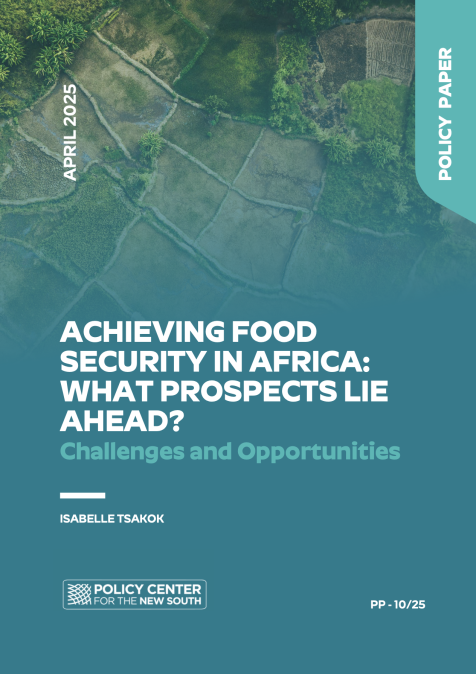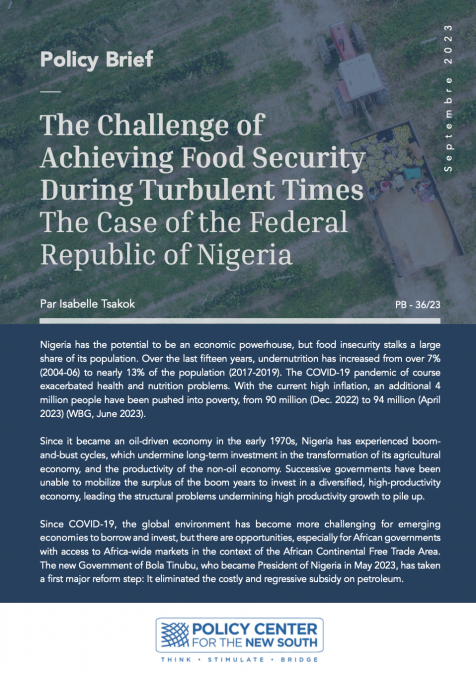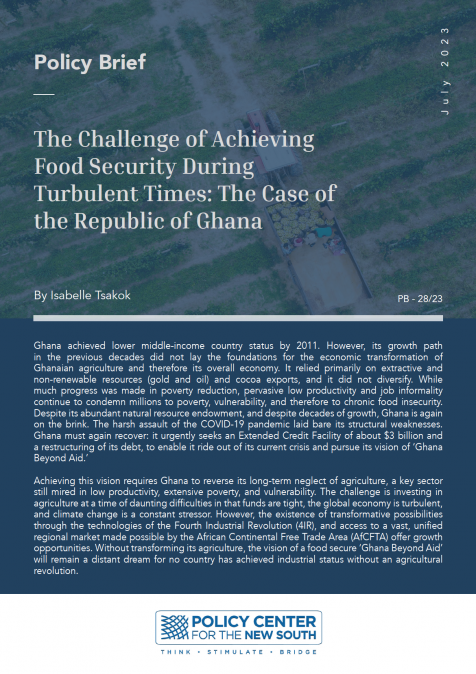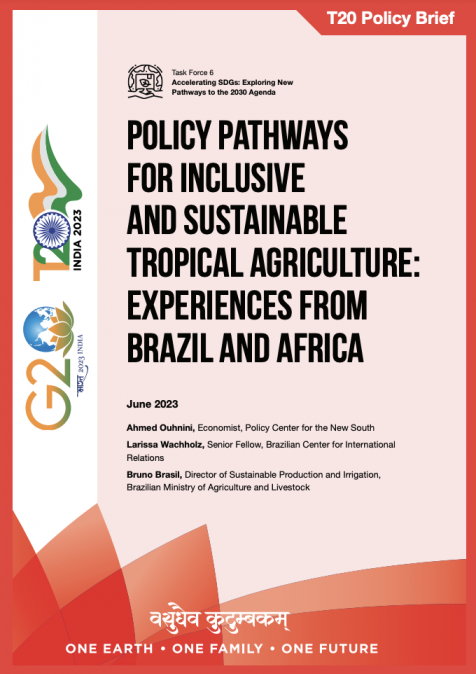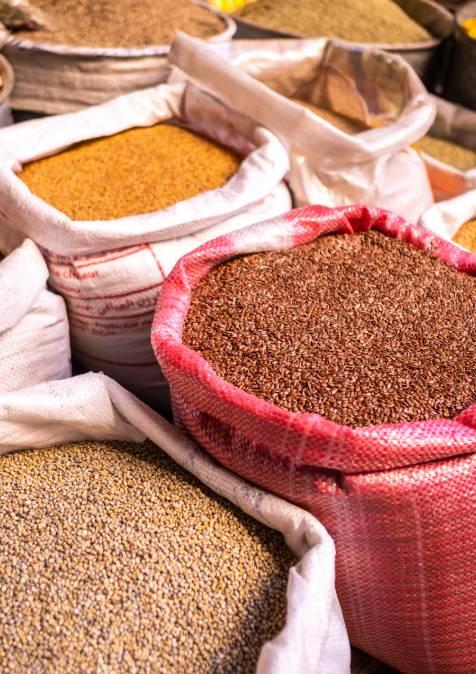Publications /
Policy Brief
L’entrée des économies africaines dans le nouveau millénaire s’est accompagnée de performances économiques remarquables, par rapport aux décennies antérieures. Le secteur agricole, qui demeure la clé de voûte du développement économique et social, n’est pas resté en marge. Globalement, ce secteur continue d’enregistrer une croissance robuste, tirée par une hausse de la productivité, mesurée de façon partielle et globale. Les résultats à plus basse échelle laissent toutefois entrevoir de sérieuses disparités et un besoin de renforcer les progrès réalisés pour réaliser les objectifs de développement. A l’opposé des pays développés, la croissance agricole dans le continent demeure principalement tributaire de l’augmentation de l’utilisation des facteurs primaires, conjuguée à une stagnation de l’utilisation des inputs. Tout ceci suscite encore une fois, la nécessité de s’investir davantage à réunir les conditions qui favorisent l’émergence de la productivité.


